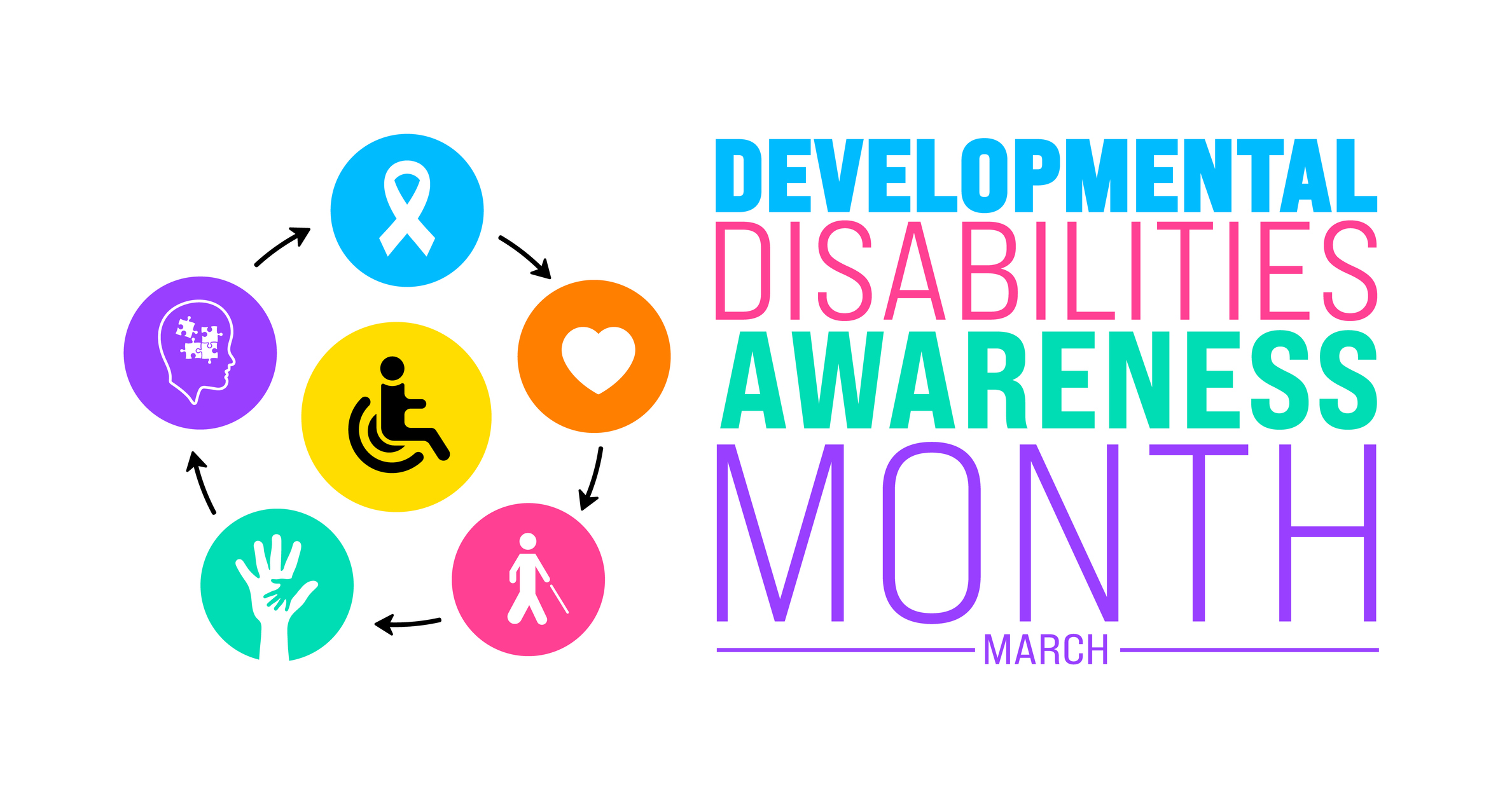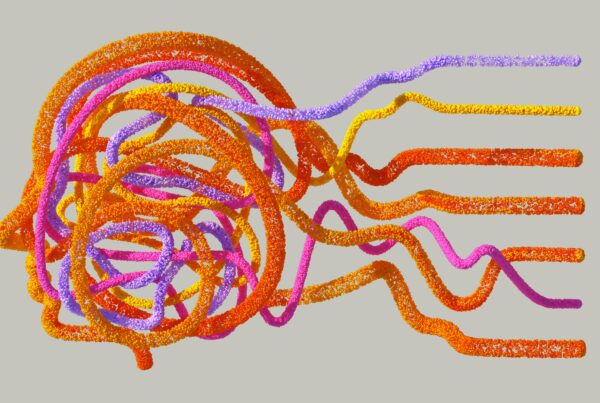Written by: Rachel Brauner, Extension Program Specialist, Texas A&M AgriLife Extension Service
Developmental Disabilities Awareness Month occurs each March and provides us an opportunity to reflect on empathy, understanding, and advocacy. The theme for 2024 is A World of Opportunities, helping raise the collective consciousness about the experiences of individuals with developmental disabilities. It’s a time to celebrate strengths, acknowledge unique experiences, and renew our commitment to creating a more inclusive society where every individual, regardless of ability, is valued and supported. Significant progress has been made in recent decades towards promoting the rights, inclusion, and empowerment of individuals with developmental disabilities but there is still much more we can do.
The Impact of Developmental Disabilities
Developmental disabilities encompass a diverse group of conditions that typically emerge during childhood and persist throughout an individual’s lifespan (Ruben & Crocker, 2005). These disabilities may affect cognitive, physical, communication, social, and emotional development to varying degrees. According to the Centers for Disease Control and Prevention (CDC) some of the most common developmental disabilities include autism spectrum disorder (ASD), intellectual disabilities, cerebral palsy, Down syndrome, and attention-deficit/hyperactivity disorder (ADHD), among others. In the United States, about 1 in 6 children aged 3 to 17 years have one or more developmental or behavioral disabilities, such as autism, a learning disorder, or ADHD (Zablotsky et al., 2019).
The causes of developmental disabilities can vary widely and may include genetic factors, prenatal exposure to toxins or infections, complications during childbirth, and environmental influences (Institute of Medicine, 2001). While some developmental disabilities have known genetic or medical origins, others may arise from a combination of genetic predispositions and environmental factors.
Individuals with developmental disabilities may require additional support and accommodations to address their unique needs and challenges. These may include specialized education services, therapies (such as speech therapy, occupational therapy, or physical therapy), assistive technologies, behavioral interventions, and access to healthcare services (CDC, n.d.).
How Can YOU Raise Awareness this Month
Efforts to raise awareness, reduce stigma, and improve support services continue to evolve, aiming to enhance the quality of life and promote the full participation of individuals with developmental disabilities in society. The America’s Disability Community offers tips on how you can participate:
- Educate Yourself and Others: Take advantage of this month to deepen your understanding of developmental disabilities and share your knowledge with others. Organizations like the Arc and the National Disability Rights Network, provide platforms for education, advocacy, and support for individuals with developmental disabilities and their families.
- Personal Stories: Share personal stories of individuals living with developmental disabilities and their families. Personal narratives can help humanize the experiences and challenges faced by individuals with developmental disabilities, promoting empathy and understanding.
- Show Support: Get involved in events or leverage social media platforms to demonstrate your support. Also, you can organize community events such as awareness walks, fundraisers, or art exhibitions featuring the work of individuals with developmental disabilities. These events provide opportunities for engagement, dialogue, and networking within the community.
- Advocate for Change: Advocacy efforts may involve advocating for accessible public services, inclusive education, and expanded employment opportunities. Legislation such as the Americans with Disabilities Act (ADA) in the United States and similar laws in other countries have helped to protect the rights of individuals with disabilities and promote accessibility and equal opportunities in various domains of life.
References
America’s Disability Community. (2024). Developmental Disability Awareness Month: Embracing “A World of Opportunities” 2024. Retrieved on March 6, 2024 at https://www.ameridisability.com/developmental-disability-awareness-month-embracing-a-world-of-opportunities-2024/#:~:text=Developmental%20Disability%20Awareness%20Month%3A%20Embracing%20“A%20World%20of%20Opportunities”%202024,-By%20Staff%20Writer&text=March%20is%20recognized%20as%20Developmental,of%20individuals%20with%20developmental%20disabilities.
Centers for Disease Control and Prevention. Facts About Developmental Disabilities. Accessed on March 6, 2024 at https://www.cdc.gov/ncbddd/developmentaldisabilities/facts.html#:~:text=Developmental%20disabilities%20are%20a%20group,last%20throughout%20a%20person%27s%20lifetime.
Institute of Medicine (US) Committee on Nervous System Disorders in Developing Countries. Neurological, Psychiatric, and Developmental Disorders: Meeting the Challenge in the Developing World. Washington (DC): National Academies Press (US); 2001. 5, Developmental Disabilities. Available from: https://www.ncbi.nlm.nih.gov/books/NBK223473/#
Rubin I. L. & Crocker A. C. (2005). Medical care for children and adults with developmental disabilities (2nd ed.). Paul H. Brookes; Eurospan distributor.
Zablotsky, B., Black, L. I., Maenner, M. J., Schieve, L. A., Danielson, M. L., Bitsko, R. H., Blumberg, S. J., Kogan, M. D., & Boyle, C. A. (2019). Prevalence and Trends of Developmental Disabilities among Children in the United States: 2009-2017. Pediatrics, 144(4), e20190811. https://doi.org/10.1542/peds.2019-0811
*Photo Source: iStockphoto/Neelrong28















